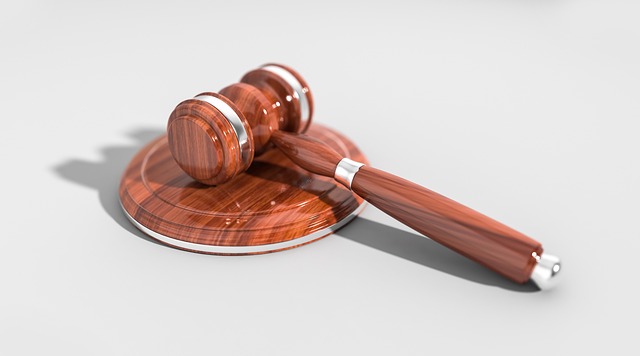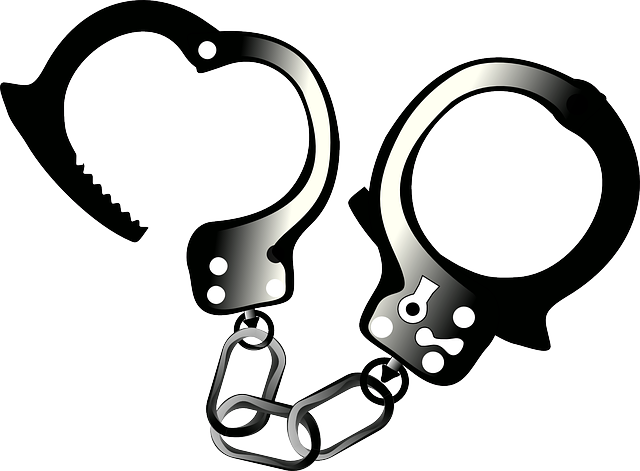Public corruption charges severely impact trust in institutions, necessitating understanding of ethical conduct expectations and strict legal governance. This section clarifies misconceptions about appeal denials in such cases, which are often due to procedural errors, insufficient evidence, or misinterpretations of law, not guilt. Common Reasons for Appeal Denial pose complex hurdles, requiring meticulous preparation and adherence to legal procedures from the outset. Strategic defenses leveraging compelling arguments, new evidence, and precedents have led to favorable verdicts. Legal professionals must navigate media portrayal's impact on public perception and judicial decisions while focusing on these Common Reasons for Appeal Denial to ensure fair outcomes.
“Public corruption charges: Navigating a Complex Legal Landscape. Understanding the intricacies of public corruption accusations is paramount, especially considering their profound legal implications. This article dissects the phenomenon, offering insights into common misconceptions surrounding appeal denials in corruption cases. We explore procedural errors that often lead to failed appeals and strategic avenues for challenging convictions. Additionally, it delves into the media’s role in shaping public opinion, underscoring its impact on corruption trials, especially when considering the Common Reasons for Appeal Denial.”
- Understanding Public Corruption Charges: Definition and Legal Implications
- Common Misconceptions About Appeal Denials in Corruption Cases
- Procedural Errors: A Major Cause for Appeal Failure
- Legal Strategies to Challenge Convictions and Sentences
- The Role of Media and Public Opinion in Shaping Corruption Trials
Understanding Public Corruption Charges: Definition and Legal Implications

Public Corruption Charges refer to allegations of illegal or unethical behavior by public officials for personal gain. This includes acts like bribery, embezzlement, fraud, and abuse of power. Such charges carry significant legal implications, as they erode trust in government institutions and can lead to severe consequences for those convicted. Understanding these charges involves grasping the nuances of ethical conduct expected from public servants and the stringent laws that govern their behavior.
Common Reasons for Appeal Denial play a pivotal role in these cases. Often, appeals are rejected due to procedural errors, insufficient evidence, or lack of legal merit. In high-stakes cases involving prominent figures, the scrutiny is intense, especially when they impact the respective business and philanthropic and political communities. This underscores the importance of meticulous legal representation and a thorough understanding of the applicable laws.
Common Misconceptions About Appeal Denials in Corruption Cases

Many people hold misconceptions about appeal denials in public corruption cases. It’s often assumed that such denials are rare or that they always indicate guilt. However, this is far from the truth. Appeal denials are a common outcome in corruption cases for several reasons. The first and most prevalent misconception is that appealing a conviction automatically leads to a reversal. In reality, appeals courts scrutinize decisions closely, but they don’t simply overturn verdicts based on disagreement. Common Reasons for Appeal Denial include insufficient evidence, procedural errors, or misinterpretations of the law by lower courts.
Another misunderstanding pertains to the role of the general criminal defense in these cases. While attorneys dedicated to defending against corruption charges are crucial, their goal isn’t to avoid indictment altogether but rather to ensure a fair trial and protect the rights of the accused. Philanthropic and political communities often face heightened scrutiny, but this doesn’t imply that all appeals are doomed to fail. Proper legal strategies focused on addressing Common Reasons for Appeal Denial can significantly improve outcomes in corruption cases.
Procedural Errors: A Major Cause for Appeal Failure

In many cases, public corruption charges lead to complex legal battles where a key challenge lies in procedural errors during the initial proceedings. These mistakes can significantly hinder a defendant’s chances of appealing their case successfully. Common Reasons for Appeal Denial include issues such as insufficient evidence, improper jury instructions, or procedural mishaps like the violation of legal formalities. When defendants fail to raise these concerns at trial levels, it becomes difficult to mount a compelling appeal.
One effective strategy in winning challenging defense verdicts is to ensure strict adherence to legal procedures from the outset. Philanthropic and political communities often face scrutiny under these charges, making it crucial for their representatives to understand and follow the rules meticulously. Moreover, while jury trials offer a level of transparency, they are not immune to procedural errors that can later be exploited in appeals, further underscoring the importance of meticulous preparation and execution.
Legal Strategies to Challenge Convictions and Sentences

When facing public corruption charges, individuals often turn to legal strategies to challenge their convictions and sentences. One common approach is filing an appeal, which allows for a thorough review of the case by a higher court. However, appeal denials are not uncommon, with various reasons behind these decisions. Common Reasons for Appeal Denial include procedural errors, insufficient evidence, and failure to preserve issues for appeal. A well-prepared and strategic defense is crucial in navigating this process.
A winning challenging defense involves meticulous attention to detail, ensuring all legal procedures are followed correctly from the initial trial to the appellate stages. Presenting compelling arguments, new evidence, or legal precedents that support the defendant’s innocence can lead to a complete dismissal of all charges. By employing these strategies, individuals have successfully secured favorable verdicts in their respective business cases, demonstrating the importance of robust legal representation and a thorough understanding of appeal procedures.
The Role of Media and Public Opinion in Shaping Corruption Trials

The media plays a pivotal role in shaping public perception during corruption trials. With their power to disseminate information, news outlets can either expose the intricacies of these cases or simplify them for a broader audience. Sensationalist coverage may influence public opinion, creating an environment where individuals are quick to judge and demand harsh punishments. Conversely, balanced reporting that presents both sides of the story allows citizens to form informed opinions.
Public sentiment significantly impacts corruption trials, particularly in high-stakes cases. When the media highlights specific instances of misconduct, it can lead to increased scrutiny from the public. This collective voice may influence judges’ decisions and even impact common reasons for appeal denial. As such, legal professionals must consider not only the law but also the perception of their clients in achieving extraordinary results.
Public corruption charges carry significant weight and can have far-reaching consequences. Understanding the intricacies involved, from defining corruption to navigating legal strategies and media influence, is essential in ensuring a fair process. Among the key takeaways, procedural errors often lead to appeal failures, highlighting the importance of meticulous handling at every stage. Moreover, the article has debunked common misconceptions about appeal denials, revealing that successful challenges require robust legal tactics. By recognizing the Common Reasons for Appeal Denial and being aware of the role public opinion plays, stakeholders can better navigate these complex cases, ultimately fostering a more transparent and accountable system.






